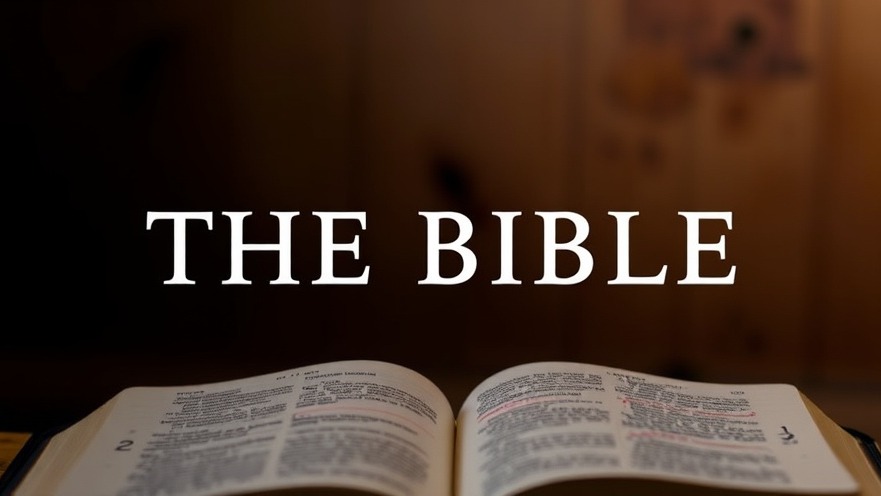
Texas Schools Embrace Bible-Infused Curriculum: A Shifting Educational Landscape
In a notable move reflecting the diverse values of its communities, one in four school districts across Texas has opted to include a new Bible-infused curriculum in their educational programs. This initiative stems from recent legislative changes allowing for such educational content, fundamentally altering how subjects like history and literature may be taught in public schools.
Understanding the Appeal of Bible-Centric Education
The growing trend of integrating Biblical teachings into schooling resonates deeply within many Texas communities, aligning with the cultural and religious beliefs of a significant portion of the population. The curriculum, heralded by its supporters as a means to enhance moral education and instill values such as respect and tolerance, aims to engage students on a foundational level. While proponents argue that such education reinforces community morals, critics express concerns regarding the potential separation of church and state, which remains a pivotal issue in educational policy.
Historical Context: The Role of Religion in Texas Education
The intersection of education and religion in Texas isn't new; the state's history is riddled with debates surrounding the inclusion of religious teachings in public schools. Historically, the influence of faith has shaped education, with significant resistance and support occurring in cycles. The 1960s saw a landmark ruling that prohibited compulsory Bible-based teaching in public schools. However, recent educational reforms have ignited a rekindled interest in allowing religious-based content, reflecting changing societal values.
Future Predictions: The Impact on Texas Education Policy
As more districts adopt this Bible-infused curriculum, we might see a ripple effect on educational standards across the state, potentially leading to more inclusive education styles that reflect Texas' diverse population. Additionally, this shift may influence future legislative decisions regarding education policy, as Texas lawmakers navigate the complex relationship between education, values, and the rights of families. Such changes may hold implications for the institutional structure of education as we approach the 2025 elections.
Echoes of an Ongoing Debate
The introduction of a Bible-infused curriculum will likely stoke the ongoing debate about the separation of church and state in Texas schools. While some parents advocate for this pedagogical shift as a way of promoting values, others stand firm on protecting secular education. Public opinions are likely to evolve as more districts embrace this educational model, reflecting local attitudes towards faith, education, and inclusivity.
What This Change Means for Texas Families and Students
For families in Texas, the shift towards a Bible-based curriculum represents a significant moment. Parents supportive of the inclusion of these teachings see them as an opportunity to enrich their children’s ethical and moral understanding in a society that often grapples with moral ambiguity. Conversely, families seeking a rigorous secular education may find this new trend troubling, worried that it may distract from core educational subjects and principles.
Looking Ahead: Actionable Insights for Educators and Policymakers
Educators and policymakers are called to engage in open discussions about the implications of these changes. Understanding the values represented by Texas' diverse community can facilitate the development of a curriculum that respects both secular and religious perspectives. By promoting dialogue among stakeholders—parents, educators, and lawmakers—the regions can foster an inclusive educational environment that prepares students for a pluralistic world.
Conclusion: Engaging with Educational Values
As Texas schools navigate the terrain of incorporating the Bible into their curriculums, the broader implications of such decisions will shape the educational landscape for years to come. By recognizing and engaging with the diverse beliefs that students and families bring to the classroom, stakeholders can ensure that Texas education remains reflective of its rich cultural tapestry. As debates unfold and communities weigh in, being informed about these changes is crucial for all Texans.
 Add Element
Add Element  Add Row
Add Row 



Write A Comment